---Originally published on Beijing Youth Daily
Co-directed by Wu Jing, Zhang Ziyi, Xu Zheng and Shen Teng, the film My Country, My Parents has gained substantial popularity during the National Day holiday. As of the publication of this article, the film has achieved a total gross of over 900 million.
As the third of the “National Day trilogy”, My Country, My Parents is in the same genre as My People, May County and My People, My Homeland. The Riding the Wind unit directed by Wu Jing is the opening of the film which tells a story of how the Mounted Regime of Central Hebei resisted foreign invaders and escorted the relocation of villagers in 1942. The unit, featuring a father and son played by Wu Jing and Wu Lei, is the largest-scale and most touching part among the four chapters.
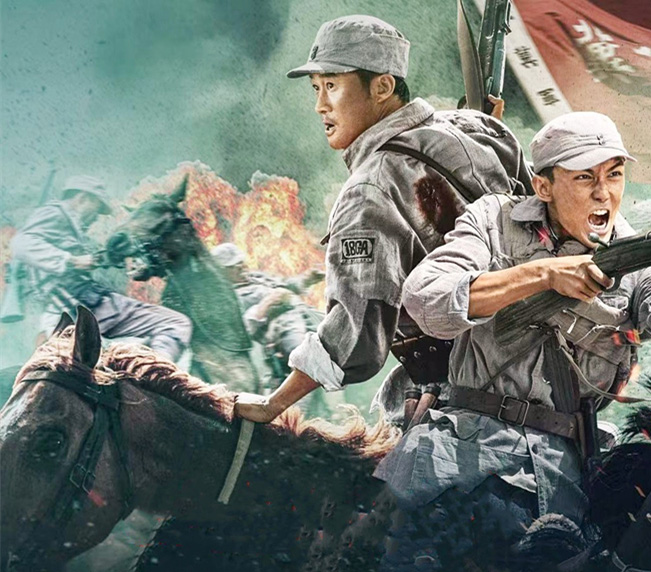
The opening day of the film also saw the launch of the Riding the Wind unit directed by Wu Jing on the Internet, the soundtrack of which consists of 14 scores. Notably, the unit has been produced by the Dolby Atmos standard, setting a precedent in China’s film music and unfolding an immersive aural experience for the audience. What is the effect of applying Dolby Atmos in soundtracks? Are there any interesting behind-the-scenes stories regarding the soundtrack production of the film? On October 5, the journalist of Beijing Headlines, an affiliate of the Beijing Youth Daily, had an exclusive interview with the music producer of Riding the WindYu Fei, who shared with us the stories behind soundtrack production.
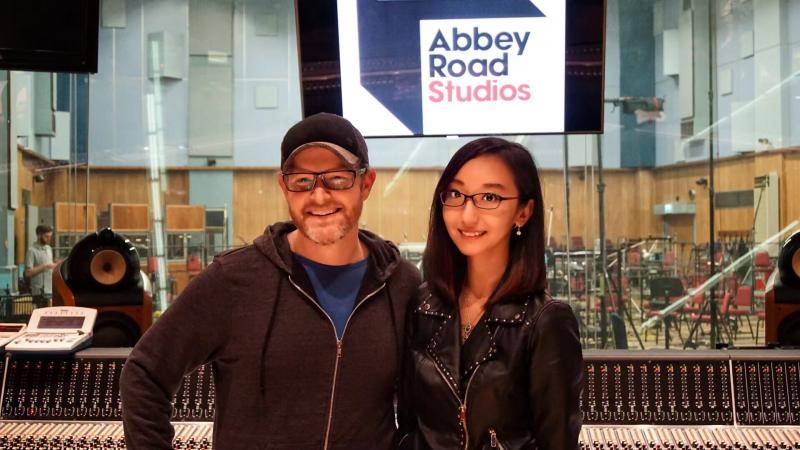
Recreating the battleground with music in Dolby Atmos format brings an immersive experience to the audience
“Previously, Dolby Atmos was only applied in films. This is the first time that the technology has been applied to an original soundtrack”, she said, her eyes glittering with excitement. She went on to explain the advantages of the technology, “using the Dolby Atmos technology, we are able to mobilize the audience’s auditory sense by placing the sound on top of their heads, or one side of the ear or even around the top of their heads. That is to say, we have more opportunities to create. Such a method helps reduce auditory fatigue and provides a sense of immersion. It is actually creative work.”
Yu Fei said that Dolby Atmos was employed in sound effects first. “For example, Dolby Atmos can be applied to accurately reproduce the sound of a helicopter flying above your head, especially the trajectory of the helicopter from your front left to somewhere right above your head and to then to the right side behind you. This way, the audience will have a feeling as if the thing really happened around them.”
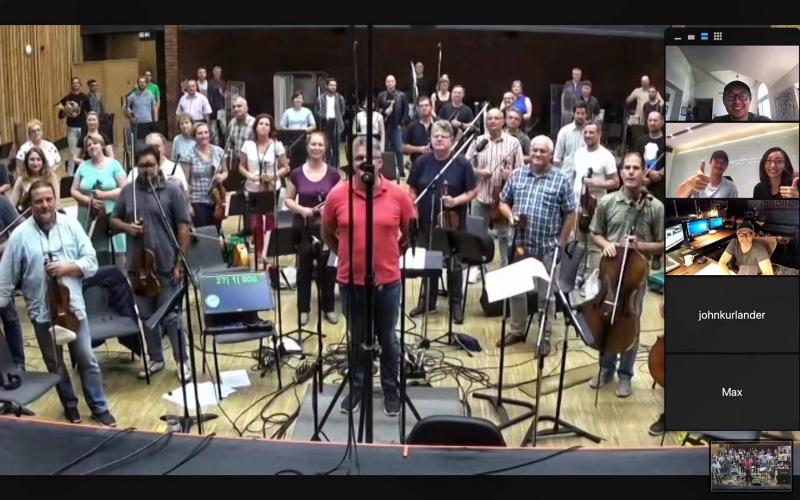
Actually, Dolby Atmos is not a rare thing in cinematic music. As Yu Fei put it, “The Eight Hundred also adopts the Dolby Atmos format, but I didn’t remove any musical element from it. For example, I didn’t make the sound hover above the audience or let it rotate. That is because I still wanted the audience to concentrate their attention on the film itself”. In Riding the Wind, the final war scenes, which last about 7 minutes, are infused with vehement and passionate music, playing a significant role in driving the emotions of the audience. Yu Fei said that “whenever the banner of the ‘Mounted Regime of Central Hebei’ is raised [in the film], music will kick in. However, it is impossible to have too much music in cinematic settings because you have got to align it with the images. But when it comes to a soundtrack album that does not rely on images, Dolby Atmos can achieve more through recreating the battlefields with music, thereby allowing listeners to gain a higher sense of authenticity when listening to music.
Despite its promise of better effects, can Dolby Atmos format music be fully appreciated by regular equipment? “We usually use two speakers (stereophonic style) to listen to music, but if you have multiple channels, such as 7 or 8 speakers, then you can listen to music in Dolby Atmos format. Of course, we have also taken into consideration the fact that most families may not have such auditory equipment, and ensure that the dual-channel sound is also adapted to Apple earphones so that frugal listeners can also enjoy the superb effect”, explained Yu Fei.
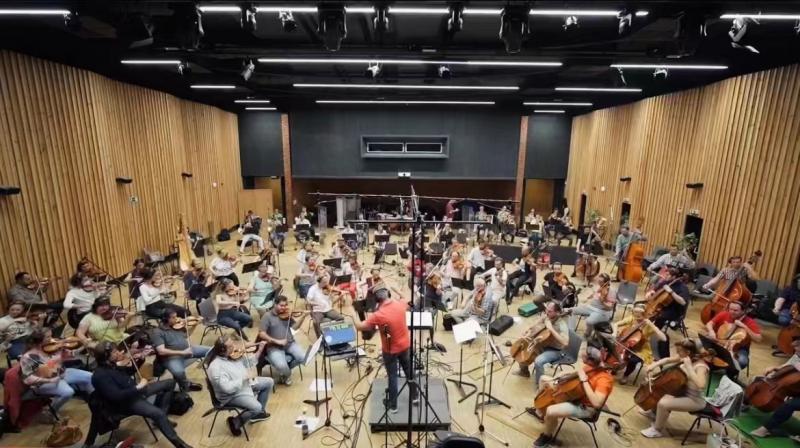
There is a delicate heart under the tough appearance of Wu Jing, a director excelling in explaining plots through acting
Yu Fei, who has served as a music producer in multiple prestigious films like The Eight Hundred, The Sacrifice and A Writer’s Odyssey, is a reputable practitioner in the entertainment circles that has been sought after by many directors for cooperation opportunities. Yu Fei said that her participation in My Country, My Parents actually started with the recommendation of Yu Baimei, the screenwriter of the Riding the Wind unit, to Wu Jing. Previously, she and Yu Baimei had worked closely on Looking Up.
With her first encounter with Wu Jing taking place at a stud farm, Yu Fei had a deep impression on Wu Jing: “It was a very hot day in summer. When they met, Wu Jing was preparing his new film upon finishing The Battle at Lake Changjin. There were dozens of horses on the stud farm. Despite the scorching day, he never slacked on practicing his moves during his training that lasted the whole day. As an actor himself, he was really good at explaining the plot to me through concrete acting; that was why could communicate with smoothly.”
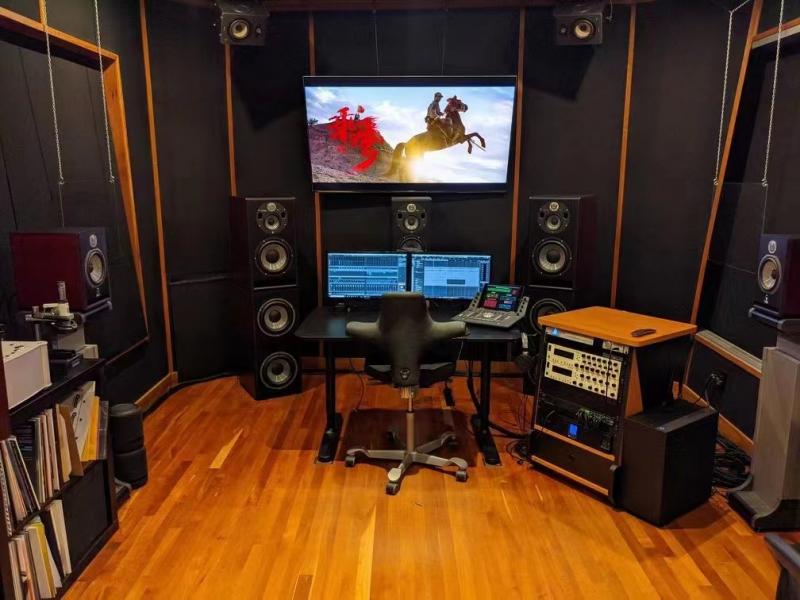
Although the Riding the Wind unit lasts 37 minutes only, it neither carries fewer emotions nor requires less devotion than any feature-length film. To ensure a perfect alignment between music and film, Yu Fei involved herself in the project team as early as in the script development stage. “After meeting the director, we immediately start to mull over the theme. He also constantly sent me videos taken from the shooting location to inspire me. The period of real intense creation didn't start until one month later.” The largest difficulty confronting Yu Fei was heavy workloads over a short period of time, “it was just like writing a novel - you need to assign major things to the most important emotions. It is never easy to write short films. How to produce a good work over such a short period of time is a challenging question to answer.”
In Yu Fei's eyes, Wu Jing is a tough guy with a thoughtful mindset, which facilitates him to explicitly convey what he really wanted in terms of creation. “He was always very vocal about the direction towards which the work should go. He often said that ‘what I am shooting about are human beings and emotions, instead of the so-called ‘big scenes’. So the inner core of the film is still a father-and-son story. With a clarified central line, I also had a clear direction for my creation.”
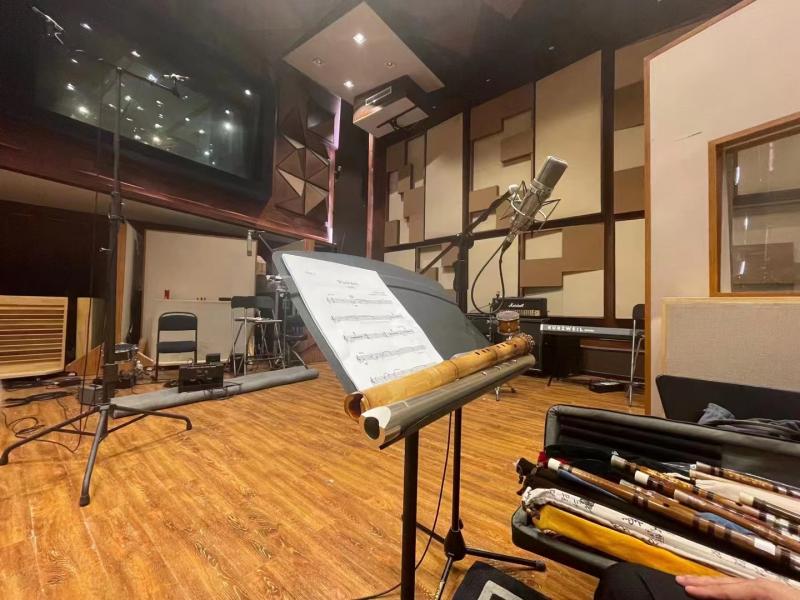
Transcending emotions and conveying profound motherland sentiments with bamboo flutes and big drums
After being clear about the emotional central line, another key problem popped up: what instruments should be used to accurately convey the father-and-son emotions? “Compared with mothers, fathers tend to hide their profound love deep inside and are not very good at explicitly expressing their love. In the film, the father-and-son relationship should be transcended into sentiments towards the motherland in the film. This [requirement] reminded me of two instruments - the bamboo flute and the big drum.” Yu Fei believes that bamboo, a joint-structured plant with a hollow interior is in good consistency with traditional Chinese quality. The fortitude spirit of bamboo can perfectly convey immense emotions towards the motherland. On the other hand, drums are also a highly appropriate instrument for this film as they were often used to issue military orders and inspire soldiers' morale on ancient battlefields.
With respect to the film score, Yu Fei chose to partner with Gordy Haab, a prominent composer whose works included Star Wars: The Old Republic and Fengshen Trilogy. Due to the COVID-19 pandemic, the recording of the score was implemented through cloud collaboration among hundreds of musicians from both home and abroad. “I stayed up many nights working alongside the director during this period, and it was quite a smooth collaboration.”
As a war-horse film, Riding the Wind had encountered a series of problems during the shooting period, but it was required that no horse should be hurt. “It is touching to see that director Wu Jing showed such respect to them. As a part of the music effort, I had been working alongside others towards the same direction and the entire crew had demonstrated great cohesion”, said Yu Fei.
Images provided by Yu Fei
Writer/ Tian Wanting, journalist of Beijing Youth Newspaper
Editor/ Gong Lifang
